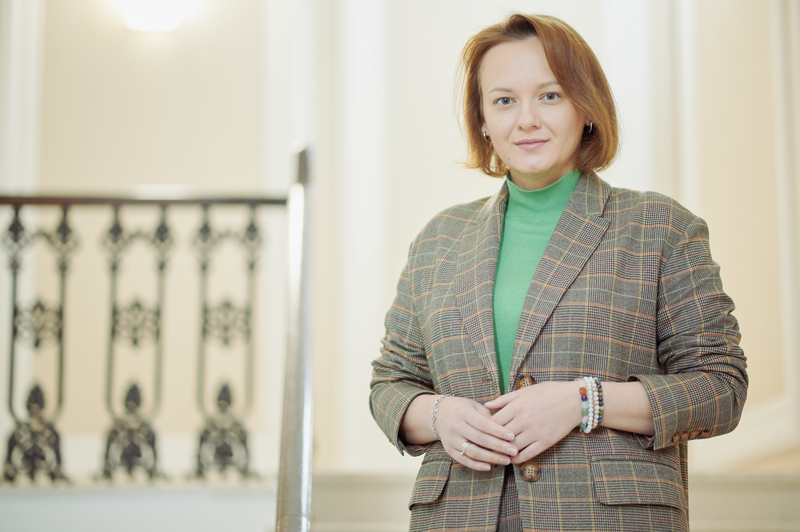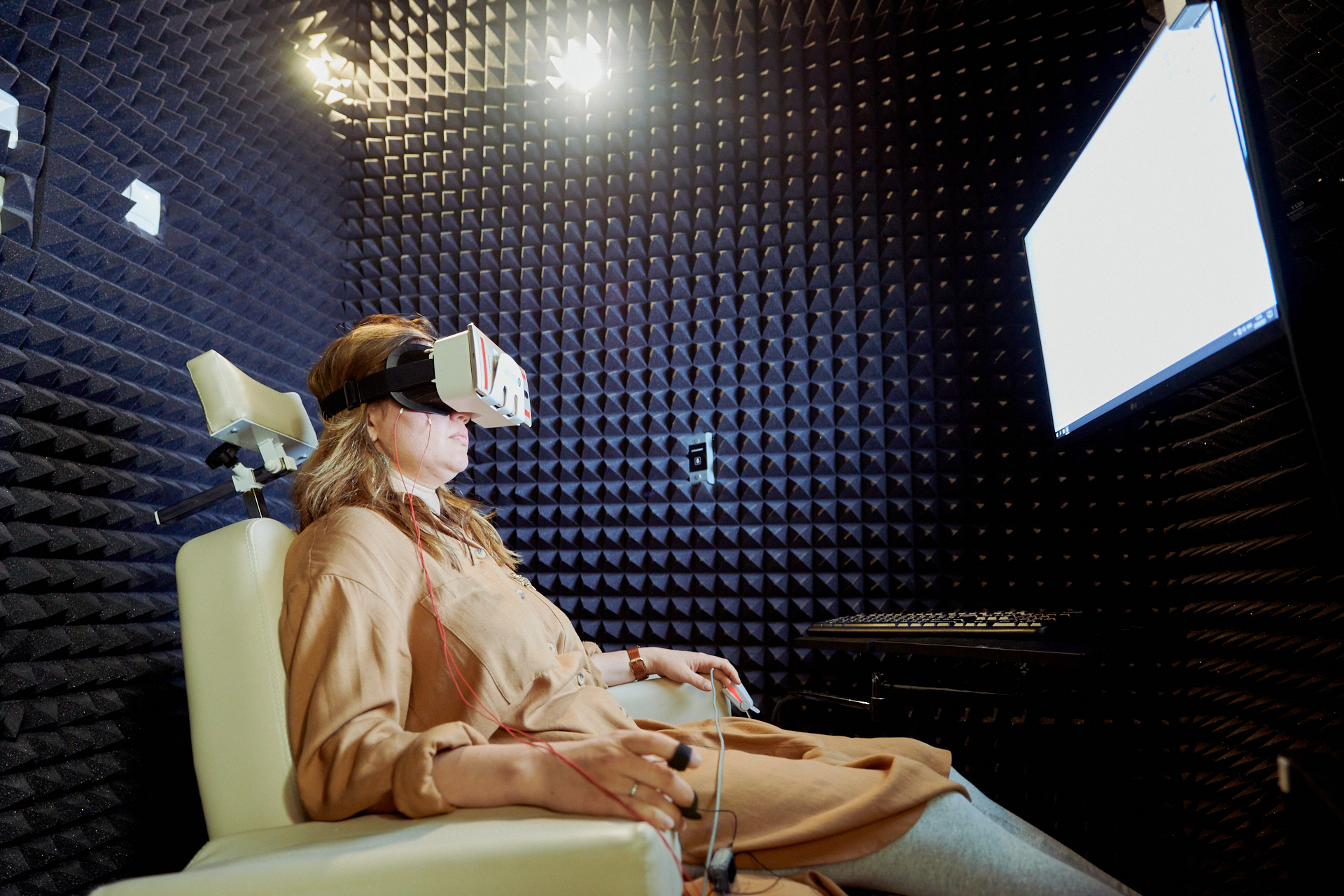Strategic Projects: Producing Scientific Results of Public Relevance

About a year ago, HSE University was among the first group of Russian universities to receive a grant from the ‘Priority 2030’ Strategic Academic Leadership Programme and began implementing strategic research projects. HSE University recently defended its report before the programme's board. Elena Odoevskaya, HSE University Vice Rector and coordinator of the HSE Development Programme for the Period until 2030 and the ‘Priority 2030’ programme, spoke to the HSE News Service about what has been achieved this year and how the format of strategic projects is changing at the university.
— How and why did strategic projects come about at HSE University?
— As part of the HSE Development Programme for the period until 2030, we have begun to transform our research work into a new format of large interdisciplinary full-cycle projects with economic, social and scientific significance.
— Once the HSE Development Programme was adopted, the university became a participant in the ‘Priority 2030’ Strategic Academic Leadership Programme. Was the result a collaboration between the two programmes?
— Yes, together they form part of our integrated development programme. The goal of ‘Priority 2030’ is to form a broad group of leading universities in Russia by 2030—centres of scientific, technological and socioeconomic development for the country. In alignment with the format of the ‘Priority 2030’ programme, we have formed five strategic projects that focus on people and their needs in a changing world: ‘Human Success and Autonomy in a Changing World’, ‘Social Policy for Sustainable Development and Inclusive Economic Growth’, ‘National Centre for Science, Technology and Socio-Economic Forecasting’, ‘Digital Transformation: Technologies, Effects, Efficiency’ and ‘Evidence-based Urbanism’.
— The university team recently presented the results of the ‘Priority 2030’ programme at a defence before the programme’s board. What was the focus of the defence?
— In presenting this year's results, we have focused on the specific effects for society, the economy and ultimately for each individual that have been achieved and that can be achieved as a result of the work of our researchers. Despite the first year being just a start-up period, we already have a number of interesting developments based on the groundwork available at HSE University.
Here are just a few examples: in the ‘Human Success and Autonomy in a Changing World’ strategic project, several projects in the next one to two years of implementation will be taken to the TRL 6-8 level (full-featured demos and prototypes working in real conditions, ready for subsequent scaling/production). These are tools to increase human resilience to the perception of fakes and deep fakes, as well as tools to assess the characteristics of human autonomy, and supra-professional skills.
HSE University in the ‘Priority 2030’ programme in 2021–2022
28 base chairs of Russian Academy of Sciences (RAS) institutions
30 mirror laboratories in partnership with regional universities
528 employees of Russian universities awarded internships at HSE University
200+ research and analysis projects commissioned by regional governments and businesses
15,000 network students and 43 universities
11 intellectual competitions involving 155,000 schoolchildren
496 partner schools
In 2022 the strategic project team at the ‘National Centre for Scientific, Technological and Socio-Economic Forecasting’ presented scenario analyses of socio-economic development, climate change, science and technology development based on big data analysis using the unique iFORA system.
Next year we aim to present an open database on sanctions, which will be constantly updated. Our colleagues have done a tremendous job in terms of systematising all the knowledge regarding the restrictive measures that have been imposed, as well as when and how they were intensified, right down to politicians' public statements on social media regarding the sanctions. This is an extremely useful tool for researchers, government representatives and the public.
The strategic project ‘Digital Transformation: Technologies, Effects, Efficiency’ provides an empirical basis for assessing the social effects of digital transformation and trends in the development of artificial intelligence.
Our insights into how technology is used by society and companies forms the basis of proposals for measures to support the IT industry.
A very promising area of this project is research into 6G networks.
— How are things with the ‘Evidence-based Urbanism’ strategic project?
— A year into the project, it has been shown that it is at a high level of readiness in terms of bringing technology to the market. Some of it has already been implemented in the work of city administrations. For example, the project has developed original transport modelling software, which is superior to foreign analogues in terms of functionality. Given the high degree of development of Evidence-based Urbanism, it was decided that this area will be further implemented as part of the University's research policy, but not as a strategic project; its team will continue to implement projects commissioned by industrial partners and government authorities.

— Will a new strategic project be created?
— Yes, we invited the programme board to support the strategic project ‘The Resilient Brain: Neurocognitive Technologies for Adaptation, Learning, Development and Rehabilitation in a Changing Environment’. The project will contribute to combating neurodegenerative diseases and mental disorders, addressing disability, and promoting active longevity. The project is expected to bring new products to the market quickly, for example in the field of personalised neuroprosthetics. It is worth mentioning that HSE University started developing the field of cognitive science quite a while ago.
Now, in 2022, there is not just a research unit within the university, but a globally competitive neuroscience research cluster.
Our colleagues are developing unique technologies; they have a substantial number of partnerships with medical organisations. We expect that specific technologies will be brought to market in the next two or three years of the project.
— Is the practice-oriented approach, involving external partners, one of the characteristics of the strategic projects?
— This is a conscious policy, because our task is to make sure that our research is full-cycle research—from the formulation of a hypothesis to a specific technology, prototype, or know-how. It is necessary for research to have a customer or consumer: an industrial partner, a specific company. In some cases, it’s HSE University itself, such as when we are talking about filling our educational products; or our founder, the Russian government, if we are talking about scenarios for the development of a particular industry. They can also be ordinary people for whom specific products are created. So our task is to provide a tool, a methodology, a development that will live on without us.
HSE Strategic Projects Today
60+ research projects
40+ faculties, labs, and centres
650 researchers
55% researchers aged 39 or younger
13 consortiums with other universities
— Are there any outside partner universities of the strategic projects?
— We have about 13 consortiums. For instance, one of our strategic projects has a consortium with Sechenov University—a leader in training for the healthcare and pharmaceutical industries—on foresight research in the field of drag design. The number of such consortia will continue to grow in future.
— Apart from the new ‘Resilient Brain’ strategic project, are there any other changes planned for HSE University's participation in ‘Priority 2030’?
—Like all higher education institutions, we need to rethink our international activities. To achieve this, we have decided to incorporate a new policy on the ‘Decolonisation of International Education: Expanding Spaces of Friendship and Mutual Trust’. We have already started creating an educational and research cluster in Eurasian integration, Oriental Studies and African Studies to win the battle for international talent. In doing so, HSE University will share its experience in international communication with other universities.

This year, as you know, we were also faced with the withdrawal of global educational platforms, such as Coursera, from cooperation with Russian universities. This is a serious challenge because, for example, HSE University had a base of around two million participants in our courses there, and this was effectively cancelled. But we supported all those who studied with us, for example, in the online master's programme: they are now studying on our internal Smart LMS platform.
The ‘Priority 2030’ Strategic Academic Leadership Programme has been implemented since May 2021. It is planned that the programme will concentrate resources to ensure the contribution of Russian universities in achieving the national development goals of the Russian Federation until 2030, increase the scientific and educational potential of universities and research organisations, and ensure the participation of institutions of higher education in the socio-economic development of the constituent entities of the Russian Federation. The goal of ‘Priority 2030’ is to create more than 100 progressive modern universities in Russia by 2030—centres of scientific and technological and socio-economic development for the country. HSE University, together with eight other universities, is included in the first group of the programme under the ‘Research Leadership’ track.
See also:
HSE Scientists Optimise Training of Generative Flow Networks
Researchers at the HSE Faculty of Computer Science have optimised the training method for generative flow neural networks to handle unstructured tasks, which could make the search for new drugs more efficient. The results of their work were presented at ICLR 2025, one of the world’s leading conferences on machine learning. The paper is available at Arxiv.org.
Neural Network Trained to Predict Crises in Russian Stock Market
Economists from HSE University have developed a neural network model that can predict the onset of a short-term stock market crisis with over 83% accuracy, one day in advance. The model performs well even on complex, imbalanced data and incorporates not only economic indicators but also investor sentiment. The paper by Tamara Teplova, Maksim Fayzulin, and Aleksei Kurkin from the Centre for Financial Research and Data Analytics at the HSE Faculty of Economic Sciences has been published in Socio-Economic Planning Sciences.
Larger Groups of Students Use AI More Effectively in Learning
Researchers at the Institute of Education and the Faculty of Economic Sciences at HSE University have studied what factors determine the success of student group projects when they are completed with the help of artificial intelligence (AI). Their findings suggest that, in addition to the knowledge level of the team members, the size of the group also plays a significant role—the larger it is, the more efficient the process becomes. The study was published in Innovations in Education and Teaching International.
Advancing Personalised Therapy for More Effective Cancer Treatment
Researchers from the International Laboratory of Microphysiological Systems at HSE University's Faculty of Biology and Biotechnology are developing methods to reduce tumour cell resistance to drugs and to create more effective, personalised cancer treatments. In this interview with the HSE News Service, Diana Maltseva, Head of the Laboratory, talks about their work.
Master’s Students of HSE, University of Campinas, and Tsinghua University Publish Joint Student Research Collection
Master’s students of the HSE ISSEK programme ‘Science, Technology and Innovation Management and Policy’ have released a joint research collection with the University of Campinas (Brazil) and Tsinghua University (China) titled ‘Being Innovative or Being on the Safe Side—Managing the Risk of Failure.’ The authors explore how organisations perceive risks and embrace innovation within different cultural contexts.
‘A Turn Away from Stereotypes’: Moscow Hosts ‘Researching the Deaf Community’ Conference
On October 17–19, 2025, the third annual interdisciplinary conference ‘Researching the Deaf Community 2025: on the Periphery of Attention’ took place at GES-2 House of Culture in Moscow. The event was organised with the participation of the HSE International Laboratory for Social Integration Research. HSE University Vice Rector Irina Martusevich addressed attendees at the opening ceremony.
Exploring the Mind: HSE Scientists Discuss Cognitive Technologies of the Future
Why we make irrational decisions, how the brain responds to fakes, and whether neural networks are capable of thinking—these were the topics discussed by early-career scientists of HSE University during the NAUKA 0+ science festival. The event brought together students and experts from various fields, united by a common goal—to deepen their understanding of the human brain and cognitive technologies.
HSE Researchers Assess Creative Industry Losses from Use of GenAI
Speaking at the IPQuorum.Music forum on October 15, Leonid Gokhberg, HSE First Vice Rector, and Daniil Kudrin, an expert at the Centre for Industry and Corporate Projects of HSE ISSEK, presented the findings of the first study in Russia on the economic impact of GenAI on creative professions. The analysis shows that creators’ potential losses could reach one trillion roubles by 2030.
International Dialogue on Urban Development: Dynamic Urbanism and Green Infrastructure
In September 2025, the HSE Faculty of Urban and Regional Development (FURD) hosted a delegation of leading scholars and urban development experts from China. Two seminars were held at the Shukhov Lab with the participation of Chinese colleagues: the first focused on green infrastructure, while the second explored the theme of dynamic urbanism. In addition, a meeting between the Chinese delegation and representatives of FURD took place at the university’s main building on Pokrovsky Bulvar. The participants discussed opportunities for expanding cooperation between universities and research centres.
HSE Tops the Ranking of Universities with the Best Employer Reputation
On October 16, 2025, Forbes Education published its list of the top 20 Russian universities with the best employer reputation in 2025. The ranking was based on a survey of leading Russian employers, who named the higher education institutions whose graduates they consider the most well-prepared and are most inclined to hire. HSE University took first place in the ranking.


